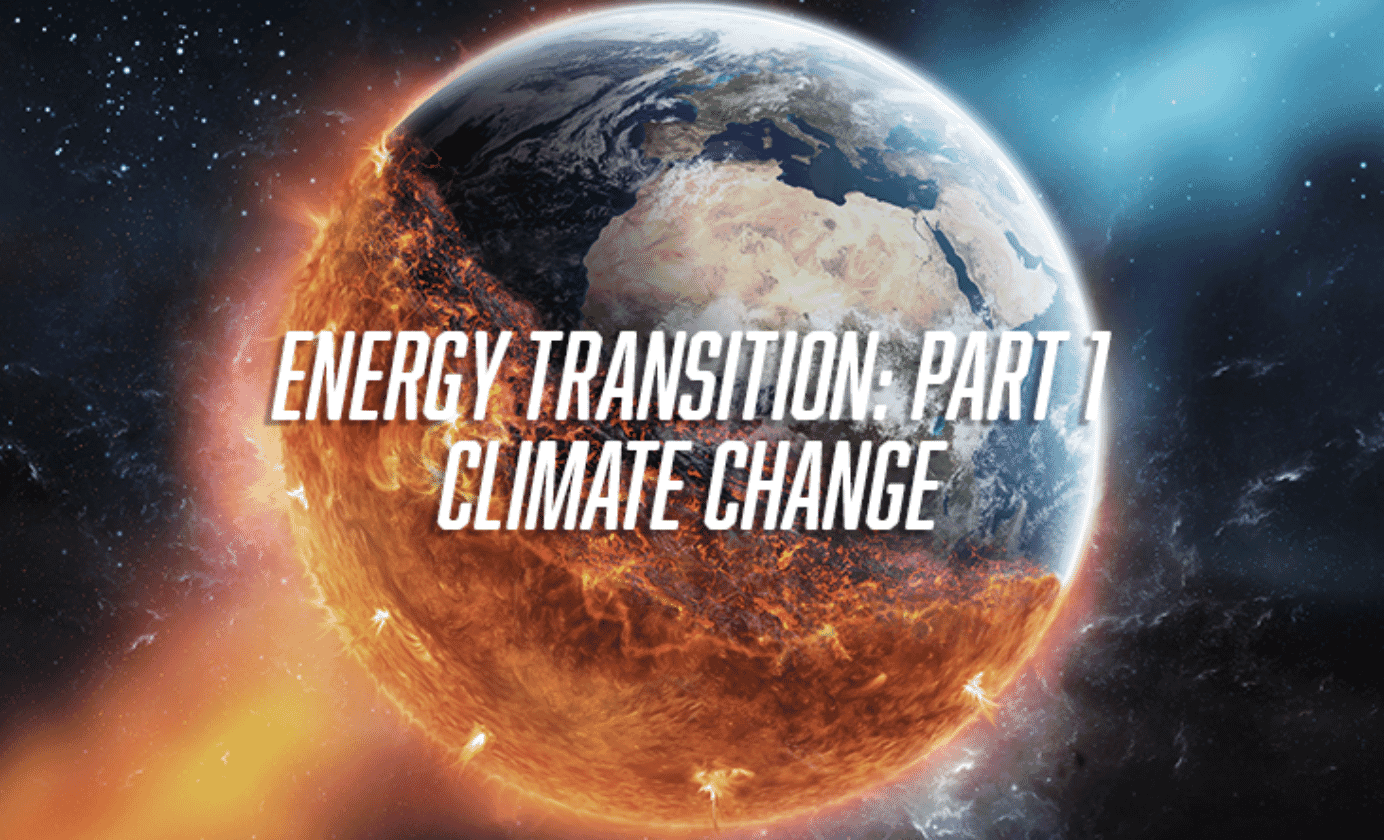3 minute Read
Energy Transition: Part 1 – Climate Change
Written By: Ian Mackenzie
First Published: (Last Updated: )

It is almost 4 years since I wrote and posted “Remember to look up” comparing the arrival of low cost renewables to a meteorite strike about to hit the fossil fuel industry. So time for an update in exploring 3 changes in 3 parts:
· Climate Change
· Changing energy mix / transition
· Personal Change
Climate change
It really shouldn’t have taken a 16-year-old Swedish girl to wake us all up to the fact that climate change is real, dangerous and something that humanity needs to address urgently. Unfortunately, our collective response to the climate crisis has been way too slow, like a frog being slowly boiled in a pot we have avoided action until it is now almost too late to jump out. There is now no doubt that 2 degrees and above of temperature rise will have a devastating impact on our world and future generations, it is no wonder the young are leading the call for change.
I share my own responsibility for climate change. Throughout my career I have played my part in helping to produce millions of barrels of North Sea oil and gas. Over the last 100 years cheap fossil fuels have provided energy to heat our homes, fuel our vehicles and drive our economy and development. However, we have now passed the tipping point where the risks outweigh the benefits and urgent action is now needed.
Thankfully those who would deny climate change are now very few and far with the Oil Majors such as BP, Total and Shell all now in agreement with the science and signalling that the end game for Fossil Fuels is now on with their growing commitments to Net Zero ambitions.
If you are still have any doubts about climate change please read some of the peer reviewed science. Here are my suggestions from the IPCC.
International Panel on Climate Change 2013 Summary
2019 IPCC report on Oceans and Cryosphere summary (I find this one particularly scary)
If you’ve skipped these, I get it, this stuff can be a little dry, but please consider reading them as it will likely have more of an impact than anything I say. A wider understanding of the problem and urgency is the first step towards humanity taking the right actions to limit climate damage and solving the problem.
As natural optimist I still believe it is possible for our civilisation to survive and thrive but only if we take decisive action and avoid putting our collective heads in the sand. We have many of the solutions we need already out competing Fossil Fuels and the other solutions we need are coming down the pipeline (literally in Hydrogen’s case). Humanity has an incredible capacity to solve the problems we face. If COVID has taught us anything it is that the collective actions of human society can make a profound impact on outcomes. When it comes to climate change we already know what we need to do, in fact the rollout of many low-carbon technologies such a solar and wind are driven purely by economics (they are a lot cheaper than fossil fuels – but more on that in part 2), the real question is will the change come fast enough.
To answer that question, we need to know how much time we have left. If you want to know how much time we have to get to net zero to keep the world’s temperature rise to 1.5°C or 2°C see this link below.
As of today, at the current rate of C02 release we have just over 7 years left for 1.5°C and only 25 years to limit warming to 2°C. Sadly, limiting the change to 1.5°C is now all but impossible in my view, however limiting to 2°C is still possible and we need to move quickly and decisively in order to meet the challenge. It will take the best of human ingenuity, collective effort on a scale not seen in decades and real leadership, but in the end the transition to Net Zero must and will prevail and ultimately help us build a better world.
In part 2 I’ll look explore the rapidly changing energy mix and explore how ultimately low carbon economy will prevail in the end.
